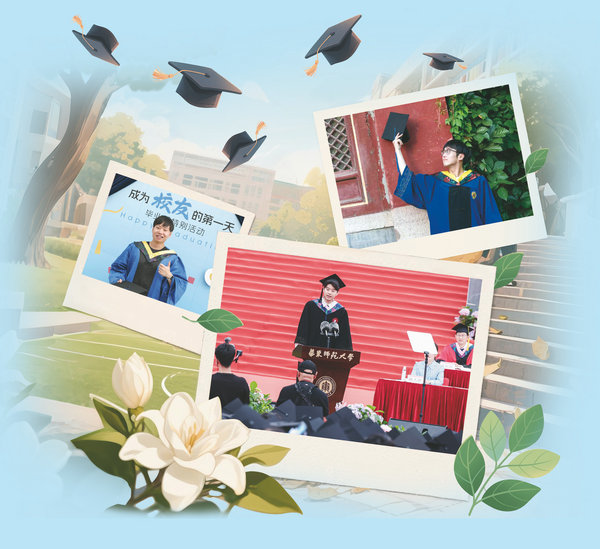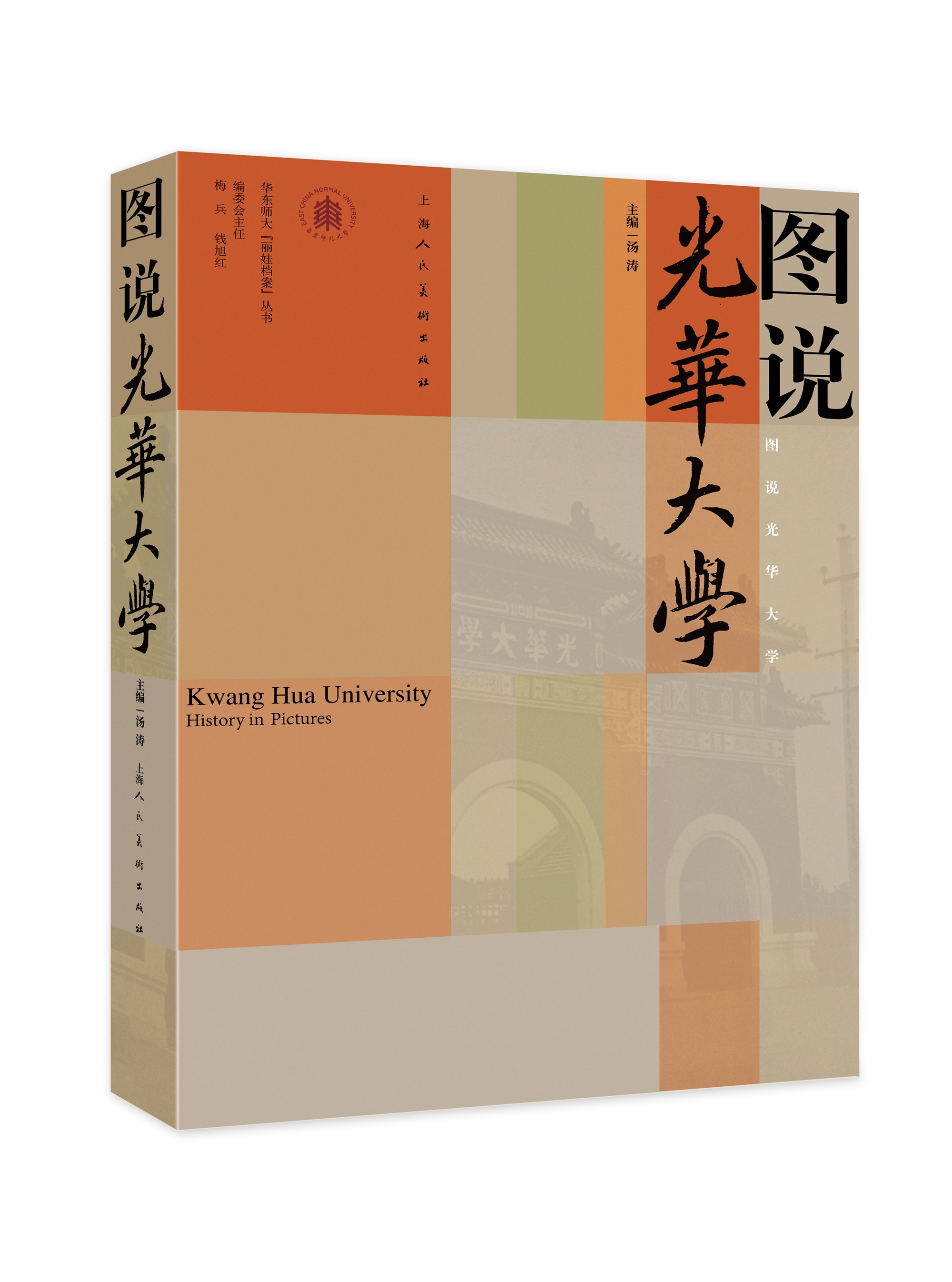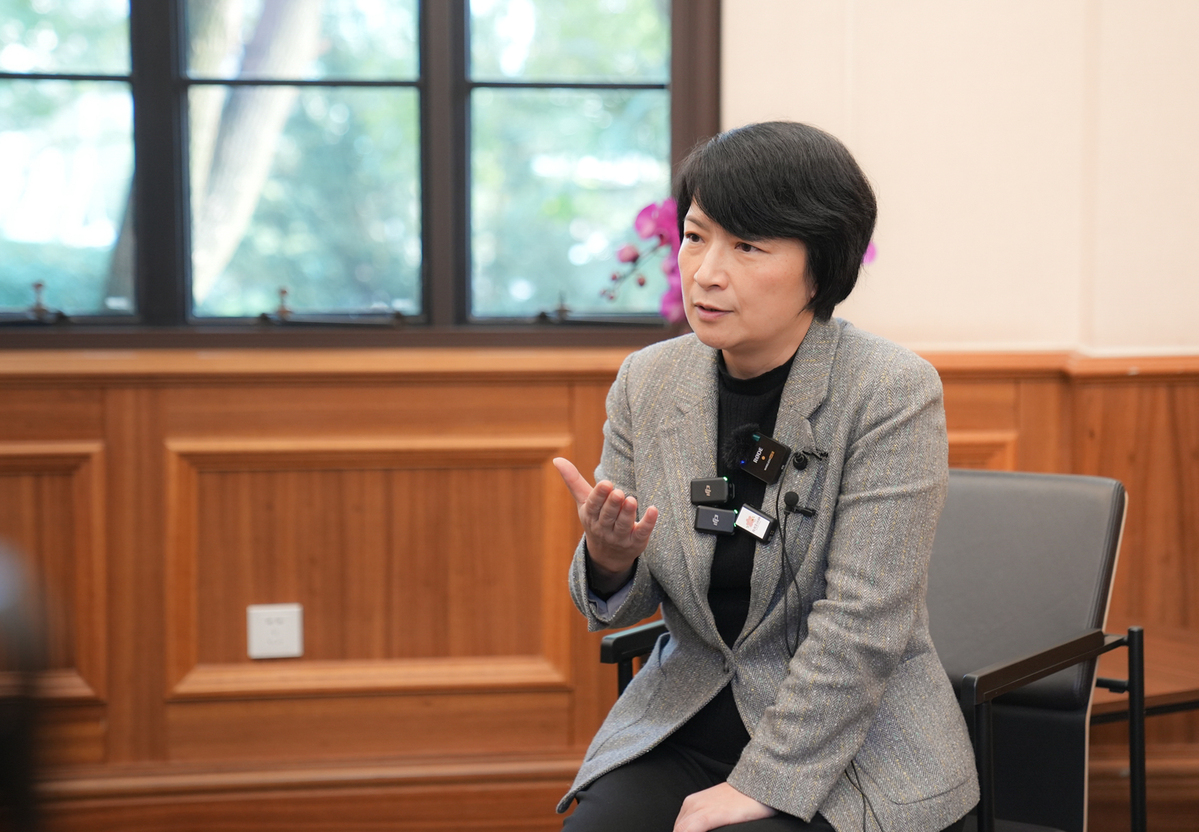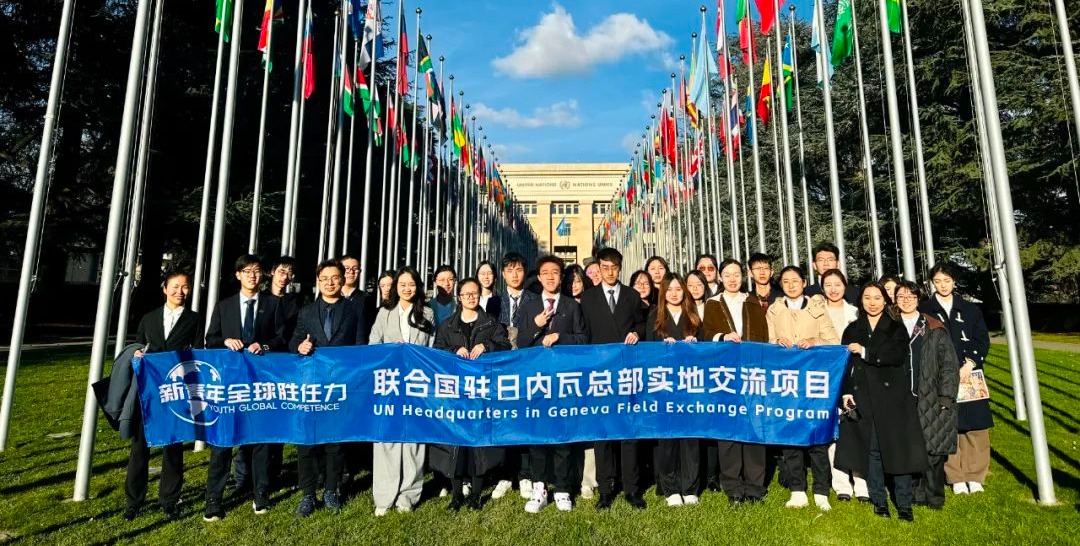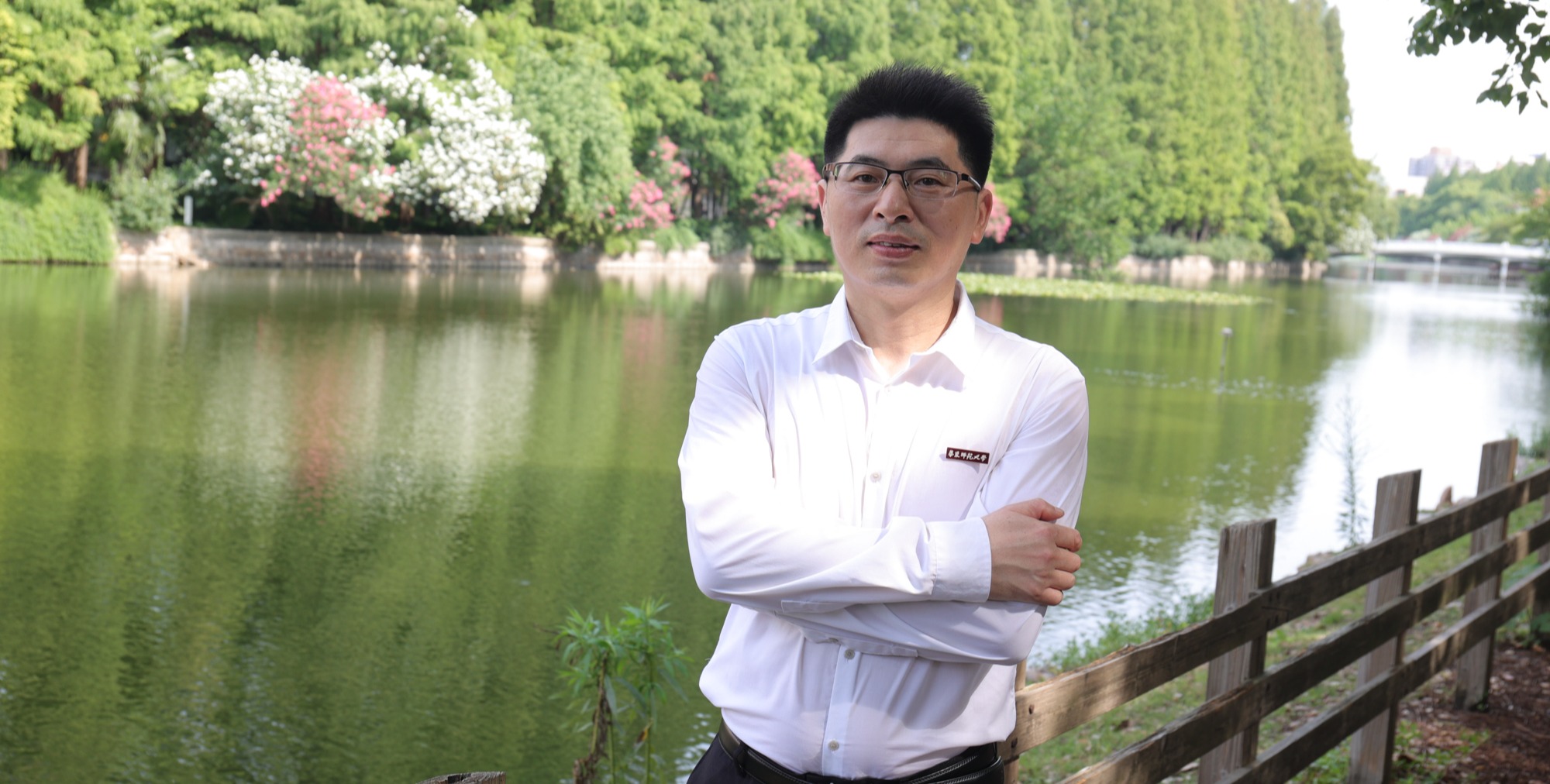# Hot Search #

At ECNU Commencement 2023, Prof. Wang Linfa, an alumnus of the Biology Department, Class of 1977, internationally renowned virologist and Director of the Institute of Emerging Infectious Diseases at Duke-NUS Medical School, expressed his best wishes and expectations to the graduates as the alumni representative. In his speech, Prof. Wang Linfa shared his own study and scientific research experience, outlining his definition of success and how to achieve and maintain success.
Wang Linfa’s original speech is shown as follows:
Success favors prepared mind
Dear university leaders, teachers, parents, students, good morning!
It’s my great pleasure and honor to be the alumni representative to witness the graduation of another class of outstanding graduates from ECNU. First of all, I’d like to express my heartiest congratulations to all the graduates and your families.
After the College Entrance Examination was resumed in 1978, I was lucky to be in the first class of graduates. I was 17 when I entered ECNU and 21 when I graduated from ECNU. When I graduated in 1982, we were not as fortunate as you are today, because we did not have a formal graduation ceremony, let alone graduation gowns.
For me, being admitted to ECNU for studies felt like entering heaven, because in my big family, no one had ever attended a formal school, let alone a university. When I was first elected as an academician in 2010, the Shanghai Federation of Returned Overseas Chinese visited my parents’ home to congratulate me. My father was thrilled to see the city leaders but did not quite understand what had impressed them. He asked a simple question that no one had explained to him: “What is an academician?” That is my father, an academician’s father who doesn’t know what an academician is.
In retrospect, my career has been an incredible journey over the past four decades, and I would like to express my heartfelt thanks to the leaders, teachers and all the staff members at ECNU for shaping who I am today.
I’m sure that everyone here today is as excited as I was in February 1982 to be a young graduate. All of you must desire to try all means to succeed in your life’s journey.
Therefore, today I would like to share with you some of my thoughts on success. My topic is titled: “Success favors the prepared mind.” As a scientist, I’m accustomed to presenting my findings in the form of questions and answers. Now, I will address three questions: What is success? How to achieve success? Chance favors the prepared mind.
What is success? My definition of success is: You are able to do what you love in your field of interest with 80% of your effort and ability, and do it better than average.
First and foremost, you need to enjoy what you are doing. It is important to remember that interest can be cultivated, so please don’t decide your interest too early and too narrowly. I am a perfect example of this. When I was admitted to ECNU, I didn’t like biology, but when I started doing my PhD research, I began to fall in love with my major, and now I am madly in love with bat biology, and have gained the international nickname “Batman.”
Secondly, success doesn’t necessarily mean being the top-ranked or coming in first place. It means performing above the average level.
Last but not least, it is equally important to recognize that true success in life is a holistic outcome. Life should not be solely focused on academics, degrees, or publications. Therefore, it’s crucial not to make any single aspect of your life the sole point of focus. It’s about putting in 80% effort rather than 100%. I personally follow this approach, ensuring that amidst busyness and numerous responsibilities, I allocate 20% of my time to non-professional pursuits.
How to achieve success?
Based on the lessons and experiences I have gained in life, I believe that the best approach to achieving success is to make the most of the resources you currently have and excel in what you are currently doing. This includes setting realistic life goals. When I was in the U.S, I encountered many international students who initially set lofty goals for themselves, but ended up not succeeding, because they set their goals too high or focused on things they were not truly interested in or unable to achieve.
In addition, I believe in “the right place and right time.” If you give your utmost efforts and perform better than most people in your field, opportunities will come knocking at your door. You just need to seize those opportunities when they arise.
My own experience resonates with that as well. In 1978, I didn’t dare to choose ECNU in my college application because I thought ECNU was too high f a goal for me. However, since then, I have always been selected by others to reach higher levels, such as pursuing a Ph.D., engaging in postdoctoral research, becoming a professor, an academician and even being recognized as an expert by WHO etc.
Chance favors the prepared mind.
This is the motto of Louis Pasteur, a famous French microbiologist. I cherish it, not only because I work in microbiology, but also because it truly reflects and confirms my life journey.
Taking the Covid-19 pandemic as an example, I have been working on bats and the viruses they carry since 1994. By the time the COVID-19 outbreak occurred, I had been working in this field for almost 30 years and was one of the world’s leading experts in this field. Therefore, it can be said that I was well-prepared for the occurrence of this disease.
On January 9th, 2020, I arrived at ECNU; on January 14th, I left Shanghai for Wuhan Institute of Virology, CAS, and returned to Singapore on January 18th. As soon as I landed, I started guiding the research on the novel virus (referred to as “2019 Novel Coronavirus” at that time), now known as SARS-CoV-2. We have made world-leading progress in new diagnostics, vaccines and other clinical research. Over the past three years, our team has published nearly 150 papers, including publications in Nature, Science, Cell, The New England Journal of Medicine, and The Lancet. We have also filed six patents, and the diagnostic kits developed by our team have been used in more than 90 countries.
How to maintain success?
A simple piece of wisdom: prioritize wisely at any stage of your career. At different stages of life, there will be different concerns and priorities, but for me, there’s one priority that has never changed: being a kind person should always come first.
In 2010, after being elected as a Fellow of the Australian Academy of Technology and Engineering, I was invited to deliver a speech at the Academician Forum held by ECNU. I saw this as an opportunity to express my gratitude to my Alma Mater, and without any hesitation, I wrote the following message:
Being a good person is more important than being a scientist;
doing science is more important than publishing papers;
publishing papers is more important than being an academician.
I believe that my personal success is inseparable from the education that I received at ECNU, for the cultivation at ECNU is comprehensive. Since then, I have been elected to the American Academy of Microbiology in 2021 and to the Australian Academy of Science three weeks ago.
Belief is a constant source of motivation on one’s path to success. Even amidst changing times and evolving circumstances, my belief remains unwavering and steadfast: “Being a good person above all else”.
Dear graduates, my journey has proved that it is possible to master life through hard work and reach the pinnacle of the highest internationally competitive academic world, even if you come from a family without formal education. Growing up during the Cultural Revolution, my true formal education began in 1978 when I was fortunate enough to be admitted to ECNU. There is no doubt that the education I received at ECNU has laid a solid foundation for my future career success.
Therefore, you are lucky, because ECNU today is different from ECNU in 1978. It is a lot better than it was 41 years ago, and you have better basic conditions today than I did 41 years ago.
Please remember: If I can do it, you can do better!
Last but not least, I’ll end my speech with another sentence (I don’t know who said it first, but I really like it): “Winners don’t do different things, they do things differently!”
Thank you.
Prof. Wang Linfa, an alumnus of the Biology Department, Class of 1977, is an internationally renowned virologist and currently serves as Director of the Institute of Emerging Infectious Diseases at Duke-NUS Medical School. In 2016, he was appointed as a Distinguished Professor at ECNU. He has previously held positions as a Senior Principal Scientist and CEO Science Leader of the Federal Science and Industry Organization. He was elected as a Fellow of the Australian Academy of Technology and Engineering in 2010, a Fellow of the American Academy of Microbiology in 2021, and a Corresponding Fellow of the Australian Academy of Science in 2023.
Prof. Wang Linfa specializes in the research of infectious pathogens, especially in the fields of SARS virus tracing, tracing the relationship between Hendra and Nipah viruses and animals and humans, and bat molecular immunology. He has made outstanding contributions to the world. He has published many high-level papers in world-class journals such as Nature, Science, CELL, NEJM, and more than 400 SCI-indexed publications, establishing himself as a prominent scientist in this field. As a member of the World Health Organization expert group, he returned to China to conduct research on the “SARS virus tracing” and met with the leaders of Ministry of Health, Ministry of Science and Technology, Ministry of Agriculture and Guangdong Provincial People’s Government. His work has been instrumental in shaping global scientific research directions in areas such as SARS tracing, the relationship between Hendra and Nipah viruses and animals and humans, and bat molecular immunology.
Copy editor: Huang yan, Philip Nash
Editor: Yvaine Lyu

